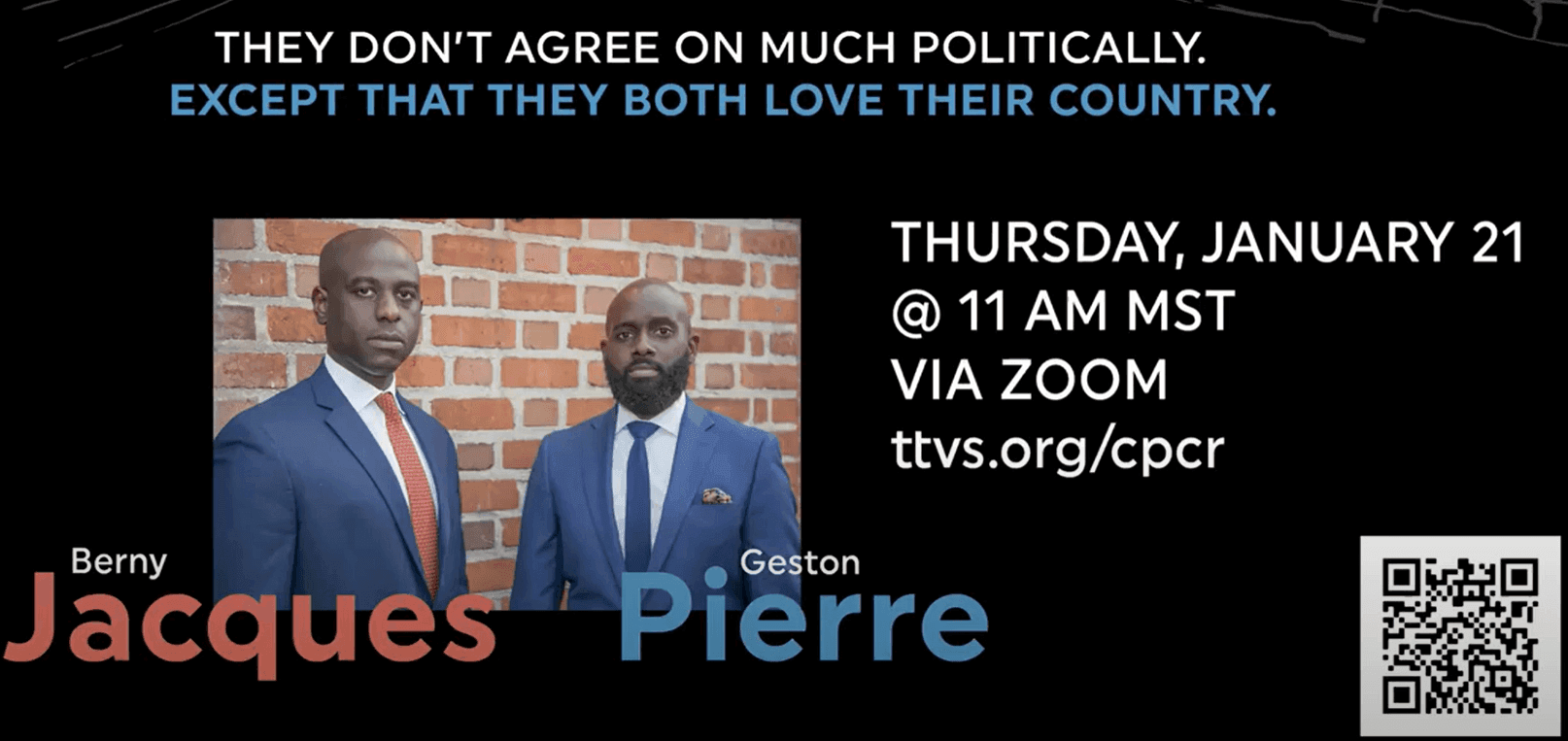BYU Center for Peace and Conflict Resolution
Transforming conflict on campus and throughout the world
Services
Dispute Resolution Solutions
The Center for Peace and Conflict Resolution has a variety of solutions to assist people stuck in a conflict.
Education
The CPCR offers seminars, workshops and quality courses that help develop conflict resolution skills that will bring peace and understanding across campus and the world.
Consultations
All of our staff members are trained and happy to help in whatever way we can. the CPCR is skilled in assisting people dealing with conflicts and can offer expert guidance when needed.
Mediation
Using a collaborative approach to resolving disputes with an impartial third party, the CPCR helps two parties decide how to resolve the conflicting issues at hand.
Arbitration
When disputing parties are unable to come to an agreement through mediation, the CPCR will arrange for an arbitration board to provide a neutral, third party solution.
Subscribe
Join Our Email List
Join and get the latest on upcoming events, news and much more - right in your inbox.
Resources
Useful Resolution Tools
These are some useful resolution tools
Legal Counsel
Legal counsel content
Campus Conflict
Campus conflict content
Helpful Reading
Helpful reading content
Community Events
Understanding Peace, Together

Past Event
Peacemaker Award
2021 Peacemaker Award and Lecture
September 23rd, 20216:00 pm
2021 Peacemaker Award and Lecture by Dr. Rima Salah

Past Event
Respect and Rebellion Dialogue
A Purple America: Extended Q & A with Berny Jacques and Geston Pierre
January 21st, 20216:00 pm
They don't agree on much politically. Except that they both love their country.

Past Event
Braver Angels
Skills for Bridging the Divide Workshops
October 30th, 20208:00 pm
Skills for Bridging the Divide Workshops

Past Event
PeaceBuilding Lectures
Does God Command Violence? War and Peace in the Book of Mormon.
February 27th, 20207:00 pm
On Thursday, Feb. 27, 2020 from 12-1 p.m. in Room 206 of the JRCB (law school), we will be hosting a peacebuilding lecture featuring Dr. David Pulsipher, a history professor from BYU-Idaho who specializes in nonviolence.

Past Event
PeaceBuilding Lectures
Dangerous Love: Book Talk by Chad Ford
February 12th, 20202:00 am
This Valentines Day, learn how to choose love in the face of conflict...

Past Event
PeaceBuilding Lectures
Inclusive Freedom
April 3rd, 20196:00 pm
Protecting religious liberty and LGBTQ rights
Frequently Asked Questions
How do I appeal an arbitration decision and what reasons would I have to have?
If one party believes the arbitrator made a mistake or miscalculation or needs to clarify the decision, that party may petition the arbitrator for modification under the procedure described in Section 29 of the Arbitration Rules. However, you must complete and submit the form Request to Modify or Correct an Arbitration Decision within 20 days of the decision and pay a $15.00 filing fee.
In certain limited circumstances, a state court could reconsider the arbitrator's decision; however, the grounds for appealing an arbitration decision to a formal court of law rarely exist. (See UCA 78-31a-12-17.) An appeal to a state court must be within 90 days after the decision of the arbitrator is served. Under applicable arbitration laws, courts will not review arbitrators' decisions on their merits. This has long been a settled principle in the relationship between private systems and the law.
How does an arbitration go?
In the hearing, each party is given 20 minutes to produce evidence, witnesses , and make their arguments and 5 minutes to make a closing statement. The arbitrator(s) can extend these time limits when there is a good cause, but usually the time limits given provide sufficient opportunity to present a case for most people. (See Arbitration Rules, Section 17).
What is arbitration?
Arbitration is a process in which two parties in conflict meet with a neutral third-party (the arbitrator)who hears arguments and reviews evidence from both sides, and then issues a legally binding decision. At the CPCR, arbitration hearings are typically conducted by a panel of three arbitrators: a BYU student, a BYU-contracted landlord, and BYU Law School faculty member (or BYU administrator with a JD). At the CPCR, we require good-faith mediation to be attempted before an arbitration can take place.
What sort of authority or enforcement will the arbitrators have?
Decisions of arbitrations between BYU student-tenants and university-contracted landlords may be enforced through Brigham Young University, and through the course of law. (See Arbitration Rules, Section 30) If enforcement is sought through the university against a BYU student who fails to satisfy any judgment of the arbitrator(s), the student will be prevented from registering for school or have his or her registration discontinued if already registered and have a hold placed on university records until the judgment is satisfied. If the landlord fails to comply with the judgment of the arbitrator(s), BYU will withdraw its approval of the rental facility for student occupancy. It is the responsibility of the prevailing party to seek enforcement action and to notify the Off-Campus Housing Office when the other party is delinquent in complying with the decision of the arbitrator(s).
You may have the decision of the arbitrator(s) confirmed in a court of competent jurisdiction if you make application to the court within 90 days of receiving the arbitration decision. An arbitration decision that is confirmed by the court will be treated and enforced in all respects as a judgment of the court. (See Utah Code Annotated 78-31a-123.)
When do I need to file for and complete arbitration?
A Demand to Arbitrate form must be filed within 90 days of the close of your mediation case. Within 90 days of submitting your Demand to Arbitrate form you must have completed the arbitration hearing.
Where do I go for arbitration?
Arbitrations are usually located in the Center for Peace and Conflict Resolution at 4412 Wilkinson Student Center. See our Contact page for directions.
Who are the mediators and arbitrators?
The CPCR relies on volunteers to fulfill needs for mediation and arbitration. Mediators can be trainedstudents, faculty, or community members who have successfully fulfilled requirements set by the CPCR.
Arbitrators are usually a panel of 3 made up of a BYU-contracted landlord, a BYU student, and a BYU Law School faculty member (or BYU administrator with a JD), all neutral to the case. Arbitrators serve on a volunteer basis.
Who may attend an arbitration?
Arbitration Panel: The arbitrators are chosen from among those trained in the CPCR's arbitration procedures. There may be one to three arbitrators. A panel of three usually consists of an attorney arbitrator, a landlord arbitrator, and a student arbitrator.
Moderator: A moderator will be present to account for time and make sure the meeting goes according to the arbitration rules.
The Parties: The parties are the person or organization that submitted a demand to arbitrate and the opposition name in the demand. If one of the parties does not contact the CPCR to reschedule and does not attend the arbitration, the arbitration will proceed without that party.
Representation: Each party may decide to attend arbitration with representation or send someone as a representative and choose not to attend themselves.
-Any party who is a lawyer or has a lawyer represent them must disclose that fact to the CPCR at least 10 calendar days before the hearing. The CPCR must immediately inform the other party of such legal representation and give them and opportunity to retain a lawyer if they so desire. (See Arbitration Rules, Section 8)-In conjunction with the J. Reuben Clark Law School at Brigham Young University, the CPCR participants in a clinical program is an optional service to the arbitration parties. If available, a law student may volunteer to assist a party by examining the case, making suggestions, researching the law, helping to prepare and organize the presentation, and/or acting as spokesperson for the party's position at the arbitration hearing. The arbitration party and the law student assistant must determine to what extent the law student will be involved in the case. Theere is no charge or fee for this service; however, the service is provided only when a law student volunteer is available for each party desiring the service in an arbitration case. Sufficient advance notice and time to prepare is needed for a law student to give assistance. When using the services of a law student assistant, an arbitration party understands that the law student assistant is not a licensed attorney authorized to practice law and is not acting as legal counsel for the party and agrees to indemnify and hold the university and the law student harmless against any claims arising out of any acts or omissions by the law student assistant in assisting the party.
Witnesses: Either party can bring witnesses to support their claims. Such witnesses may have mechanical, technical, or legal expertise. Parties, representation, and witnesses may participate via phone or provide written statements where necessary; however, we recommend that, if at all possible, they be present at the hearing.
How are mediation and arbitration different?
One of the main differences is who has control of the outcome. In mediation, parties have the power tomake an agreement. In arbitration, the arbitrator has the power to make the decision. A signedagreement in mediation, and an arbitrator’s decision in arbitration are both legally binding. Arbitrationis a more formal process than mediation and is sometimes described as “informal court.”
How long does mediation and arbitration take?
Mediation times can vary widely depending on a variety of factors. We ask that, if possible, you blockout 3 hours of time, though the average time for a mediation has been around 1-1.5 hours.
Arbitrations usually take about an hour for the proceeding.
None of this time accounts for communication beforehand, emails, etc. which can vary significantlydepending on the case.
Who can participate in mediation and arbitration?
For mediation, the CPCR primarily serves the BYU campus community. Non-BYU parties may contact theCPCR to see if their conflict is suitable for mediation at the Center. If not, we can provide referrals tooutside mediators who may be of assistance. The mediation process begins by filling out the “MediationRequest Form”. Once the form is received, a CPCR fellow will contact the parties to discuss the case andto schedule a mediation conference.
For arbitration, only BYU students and BYU-contracted landlords may participate.
What consultation do you provide?
The CPCR provides conflict consultation. This can include how to approach sensitive topics, how to set and maintain boundaries, how to communicate more effectively, etc. However, the CPCR does not provide legal counsel and cannot interpret contracts, suggest legal action, or enforce any agreements or laws. If you do not know if we can help you, please ask! We can help point you in the right direction if we cannot help you directly.
What courses do you provide?
Negotiation, mediation, and conflict resolution classes are available to undergraduate and graduate students enrolled at BYU.
I have a dispute, but I want to keep it confidential.
The CPCR believes that confidentiality is what helps these processes work. We do not report to the BYUHonor Code Office, and we keep all cases and their details strictly confidential, even destroying anynotes we may take during mediation.
There are a few things that we must report, however. This is a non-exhaustive list, but includes thingscovered by Title IX (e.g., rape), abuse of minors or the elderly, and other felonies.We also keep consultations confidential.
What is the Center for Peace and Conflict Resolution?
The CPCR is a BYU Law School program focused on promoting peace on campus and throughout the world. Some of our core functions include providing mediation and arbitration services for the campus community, organizing events, teaching courses and workshops, and offering dispute resolution consultations.
You are not neutral because you are a BYU office, right?
Our goal is to provide a fair and efficient dispute resolution process for parties in conflict. To that end, we strive to be a neutral party, and we do our best to treat all parties with fairness, respect, and impartiality.
How do I know if I should go to mediation?
While there is no clear-cut answer to this question, typically if you have unsuccessfully tried to resolve a conflict with the other person directly, mediation may be a helpful next step. Our team at the CPCR is happy to have you speak with us about your case to explore your options.
What can I mediate about?
We most often cover BYU off-campus housing landlord-tenant cases, but we can also cover other disputes, such as roommate or classroom issues. However, we do not mediate cases that have occurred more than 1 full calendar year ago. We also do not cover cases covered under Title IX and will refer you to the correct places, if needed.
What is mediation?
Mediation is a process in which two parties in conflict meet with a neutral third-party (the mediator)who facilitates discussion to help the parties reach an agreement. The mediator is not a decision-maker; parties retain full authority to come to an agreement that works for them. While a resolution is not always reached, the process is often an effective alternative to other options such as court, which can be both costly and time-consuming. Agreements reached in mediation are legally binding contracts.